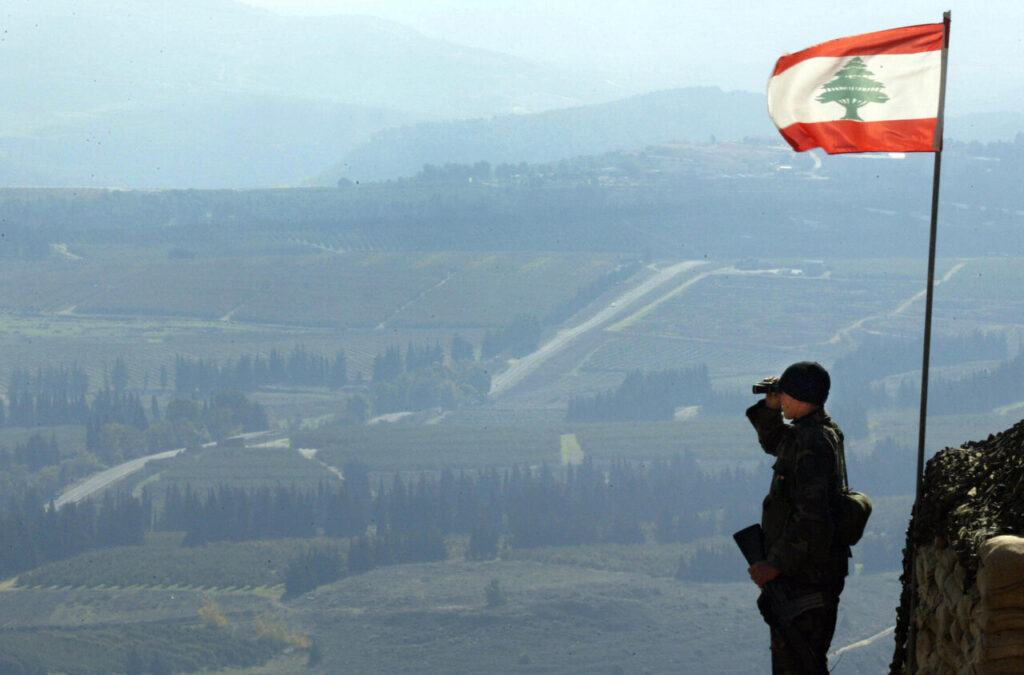Southern Lebanon – The violent Israeli raid in Lebanon on the eve of Eid al-Ada challenged the Lebanese military headquarters to issue a strong, verbal statement, including unprecedented warnings to freeze cooperation with the Cerez-Fire Supervisory Board.
It is noteworthy that the Army inspected the target area on the morning of the attack and rebutted allegations of suspected Hezbollah activity.
This confirms that not only escalated pressures on disarming resistance, it also communicated Washington in particular about the performance of Lebanese Army commanders, and even facilitated the process of disarming Hezbollah.
The Army commander warned that “the sustainability of the Israeli forces in violating the suspension of hostilities agreements and the sustainability of the Israeli forces in violating their refusal to cooperate with the Suspension Committee on Hostilities is nothing but a weakening of its role.”
The Lebanese military has no deterrent ability, but it urges those involved to take responsibility. Furthermore, it sends a deliberate message that it will not accept attempts to impose fait commonality on it.
This sharp tone reflects the level of dissatisfaction, an inactive “justice police” operating at the request of the enemy, along with the Board of Supervisors led by American General Jasper Jeffers.
Meanwhile, Hezbollah condemned Israeli invasion of Shebaa Farm, causing serious injuries to the citizens, his son, Lebanese soldiers and another son.
Hezbollah MP Ali Fayyad said, “This criminal attack on unarmed civilians exposes the aggressive nature of this existence and therefore does not require an excuse to justify the crime.”
From loyalty to resistance bloc, Fayyad called on the government to “oppose the suspension of the Hostile Supervisory Committee and continue to work with its role in vain.”
Fayyad said it could be done by submitting an urgent complaint to the UN Security Council, summoning an ambassador of the country’s agreement to put pressure on this dangerous enemy, and putting an end to his continued attacks supported by blatant American cover.
In parallel, Fayyad said in a statement, “exposed the need to touch on friction and tension between the people of the South and the Unifil forces, and to responsibly cooperate with villages, towns and private property, or to appeal friction and tension without the presence of Lebanese forces.
Hezbollah pointed out that Southerners “have no traces of Unifil’s movement, its invasion, and its persistence in assassination and hostile conduct in the territory of international military territory, to deal with the continued occupation of Lebanon’s territory by Israeli enemies.”
Fayyad said, “Nonetheless, we look forward to a positive relationship between people and international forces, as there should be a relationship between trust, security and security rather than doubt, anxiety or prejudice.”
The general foundation of resistance considers the Unifil the threat that has been deployed to serve Israel’s enemies since the 1970s.
Today, more than ever, Israeli enemies are reassuring the occupied Palestinian settlers in the north and taking advantage of the pretext of the need to establish a buffer zone by retreating to ensure that Unifil is currently stationed in the South. At the same time, it encourages the Lebanese government to take critical steps to curb Hezbollah.
This Israeli expansionist effort enjoys the support of Washington. In addition to the Trump administration’s efforts to reduce spending around the world, Washington could veto the Security Council over updating UNIFIL’s mandate.
Therefore, Lebanon could face two options rather than a third. The problem of disarming the resistance movement is resolved or falls into a trap of security vacuum after UNIFIL’s withdrawal.
In either case, unfortunately, Lebanon’s outcome is disastrous, increasing fear of the rapid collapse of the ceasefire agreement and returning to war.
According to the Western and Persian Gulf Arab monarchies, UNIFIL’s withdrawal is evidence of President AON’s failure to fulfill his commitment. It therefore leads to loss of international support and deepens the institutional paralysis of a country already suffering from an unprecedented economic collapse (estimating the cost of rebuilding what was destroyed in the ongoing US-led Israel attack at around $4 billion). “Given the role of working with the Lebanese army, we appreciate France’s role in ensuring the renewal of Unifil’s mission,” said Jean Yves Le Dorian, a French envoy in Beirut.
“The existence of Unifil has become a regional need, not just Lebanese,” stressed Aoun, celebrating “President Macron’s efforts to convene an international conference to support Lebanon in the fall that came.”
Parliamentary Speaker Navi Beli confirmed on his part “his commitment to France’s efforts to support Lebanon in confronting the hatched plot against Unifil.”

